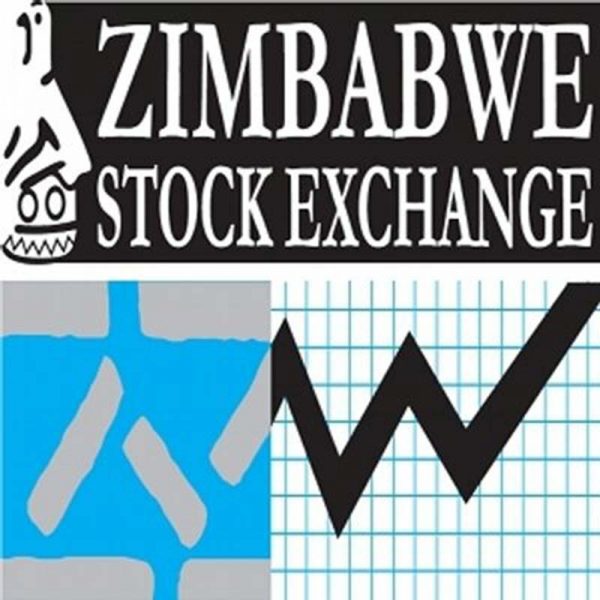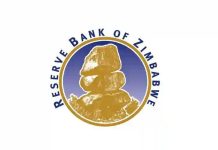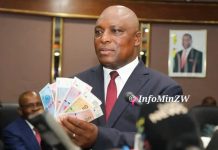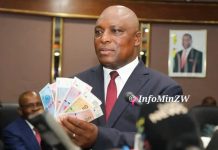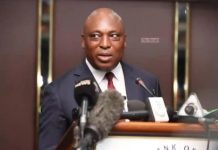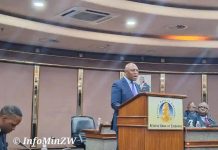ON June 26, 2020 the Information ministry announced in a tweet that all mobile money transactions and the Zimbabwe Stock Exchange (ZSE) would stop transacting forthwith.
The authorities halted trade because they said speculation, and the use of dual-traded stocks as an indicator of the future exchange rate, as well as mobile money transactions oiling the parallel market with that derived exchange rate were undermining the nation’s currency.
I use the term “authorities” loosely here as the actual Finance ministry, under whose purview oversight of mobile banking and securities trading falls, through the Reserve Bank of Zimbabwe (RBZ) and the Securities Commission of Zimbabwe (SCZ) respectively, had initially been blindsided by the announcement.
The RBZ had to scramble and issue confirmatory statements the next day.
Their statement actually deviated from the harsh tone of the initial Information ministry pronouncement and allowed the mobile money agencies to continue operating.
The RBZ issued a watered-down ban on some services offered by mobile money transfer (MMT) agencies.
RBZ governor John Mangudya said people could still do certain transactions as he moved in to correct a statement by Information ministry permanent secretary Nick Mangwana that had ordered the freezing of all mobile money services.
Mangudya said money agents were banned from facilitating mobile financial transactions and that merchant transactions were suspended except for receiving payments for goods and services with a $5 000 daily limit.
He stipulated that the cash-in and cash-out functions had been curtailed as well and the agencies now had to adhere to a raft of control measures like connecting to a realtime-monitored ZimSwitch for audit and monitoring of transactions.
Was Zimbabwe’s banning of mobile money and stock exchange a necessary evil or disruptive interference by the government?
Let us take a cursory look at the background to the decision for a better perspective.
Up until the suspension of the all-share index on the Hararebased exchange, it had jumped 677% since January 1, 2020 despite Finance minister Mthuli Ncube later announcing the country expects the Gross Domestic Product (GDP) to shrink by more than 10%.
This, by far, made it the best performing index in the world in terms of return on investment percentage on initial capital.
The 175-year-old Old Mutual is a big player on the bourse.
The insurer’s shares are listed in London, Johannesburg and Harare.
These interesting numbers show success and this very fact alone implies shutting the exchange down was ill-informed.
Also, for a capital market which had up to that point only one stock exchange in the country, it makes the decision a no-brainer. But was it? Capital markets refer to a broad spectrum of tradable assets that includes the stock market as well as other venues for trading different financial products. The stock market allows investors and banking institutions to trade stocks, either publicly or privately.
Stocks are financial instruments (assets that can be traded and these assets can be cash or a contractual right to deliver or receive cash or evidence of one’s ownership of an entity that represent partial ownership of a company and the like).
These assets are used extensively by companies as a means of raising capital as they sell portions of their equity (ownership) through this “equities market.”
For the Zimbabwean players, the stock exchange had also served as a refuge of sorts, protecting the investor class from surging inflation, thus maintaining value of wealth.
This is signified by the number of trades on the exchange rising by more than one-third, compared with a year earlier, as local investors, including pension funds scrambled to shield their savings against hyperinflation.
So central to functions of an economy are capital markets that suspensions are almost a once-in a-lifetime occurrence globally.
Zimbabwe too, regardless of the myriad of economic challenges, last shut down the stock exchange in 2008 when annual inflation, by some measures, peaked at 79.6 billion percent, so it really is a fundamental decision to do so.
Yet on June 26, 2020 that very resolution was made.
Equally indispensable to the growth of Zimbabwe is mobile banking and its “mobile money” transfer services, more so being in an African economy where access to formal banks per capita are depressed.
The move left subscribers and users stranded in an economy, which sees a huge portion of transactions flow through mobile money platforms due to long-term cash shortages at the banks.
The country provides a fascinating alternative model where mobile money addresses market failures where fiat money as a medium of exchange has been hampered.
Zimbabwe is the world’s second largest “informal economy” (behind Bolivia), but it also represents one of the most cashless; by 2019, eight out of 10 transactions, including everyday purchases from eggs to cement, were performed using a mobile device (and nearly all of them on Econet’s Ecocash).
Zimbabwe still has overdue loans with the World Bank and other development banks thus it doesn’t qualify for emergency aid to cushion the economic blow of the Covid-19 pandemic.
This has left it battling to wrestle control from market players as an intervention tool.
Earlier in June, the central bank had already begun the process by outlawing sharing black-market exchange rates on social media.
The measures have so far done little to ease the everyday strain of a collapsing currency.
Fuel stations and other stores are already demanding payments in US dollars, with consumers having to navigate more than four parallel exchange rates.
That the government has now announced a pseudo US dollar salary component to its civil servants, asked retailers to display prices in both local and foreign currency and combined with some form of US dollar-denominated fiscal taxation has put paid to the unmitigated challenges the Zimbabwe dollar faces.
This provides the backdrop to how fundamental the ZSE and MMTs have been to keeping the cogs of Zimbabwe’s economy turning and the government’s decision to eventually call time on their operation.
The sectors became good for the economy up to a point where they became “too good” as far as the authorities were concerned.
Pseudo finance ministry unto themselves. The biggest players in each of those two economic segments, that is Old Mutual and Ecocash, have henceforth become major government targets.

